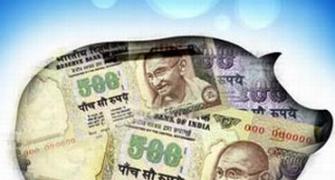Indian tax laws offer start-ups ways to save taxes, says Harneet Kaur.
Illustration: Dominic Xavier/Rediff.com

Thinking of a start-up, but wondering about the costs?
Start-up entrepreneurs are often low on cash and always looking for ways and means to minimise expenses and save for the business' future investment.
Some ways of tax planning:
1. Utility expenses
Entrepreneurs who use their personal vehicles and phones for business purposes can claim such costs as business expenses in the tax return.
As per Indian tax laws, expenses for vehicles, phones, drivers, tolls, parking, etc can be claimed as business expenses in the tax return for the business if used for a legitimate business purpose.
Further, expenses such as electricity costs, property taxes, depreciation, etc can also be claimed as a deduction if the entrepreneur is working from her/his home for business purposes.
These can help in substantially reducing the tax burden of a start-up.
In fact, these expenses are often mixed up with her/his personal expenses because in the initial days, the differentiation between personal and business vehicles, phones, office space isn't maintained.
Considering the small investment that the entrepreneur makes to start up a business, usually s/he will use her/his personal vehicle/phone and home space for her/his business. One must be careful about maintaining the bills to claim all such expenses.
2. Payments to self
There are many ways to claim deduction by paying oneself as part of the business expense.
These include non-commutable deferred annuity, contribution towards statutory/recognised/ public provident fund, approved superannuation fund, unit linked insurance plans, pension schemes, etc.
A variety of other deductions are available under Sections 80C, 80CCC and 80CCD up to a maximum amount of Rs 100,000 or the amount of contribution, whichever is less under the Income Tax Act, 1961.
3. Medical insurance
A medical insurance premium (up to Rs 15,000) can be claimed by the entrepreneur as a tax deduction under Section 80D of the Income Tax Act, 1961.
This insurance can be taken for the entrepreneur's spouse, dependent children or dependent parents. However, one thing to keep in mind is that this deduction will not be applicable for those entrepreneurs who are also in full time employment at the same time where their employer provides them with medical insurance.
4. Hiring family members
One of the most cost effective and preferred way to reduce tax burden is to employ family members and pay them salary.
If this family member is not earning any other taxable income, then any amount that the company pays them as salary up to Rs 2 lakh (rs 200,000) per year will not be taxable for such a family member.
Being an expense for the start-up, it can be claimed as an expense deduction from the taxable income of the company, thereby, reducing the total tax expense for the company.
Apart from the monetary benefit that this offers, the bigger benefit is having trusted people around for the entrepreneur which are especially important during this phase of the business.
One must be careful to hire only such family members who are eligible to do the job for which they are hired (and not just a fake hiring on paper) because if caught, the tax department can instead levy a fine on the business.
5. Start-up costs
The start-up expenses (also commonly referred to as preliminary expenses), are allowed as a deduction under Section 35D of the Income Tax Act, 1961.
These expenses that occur prior to commencement of business or in connection with setting up of a new unit are categorised as preliminary expenses.
20 per cent of the qualifying expenditure towards start-up costs is allowed as a deduction in each of the five successive years beginning with the year in which the business commences or in which the new industrial unit commences production or operation.
Hence, it is a good idea to keep track and proofs of such expenses even before the business has commenced because they can provide tax benefits in future years.
In an effort to give a further encouragement to start-ups in India, the government has recently announced exemption on capital gains tax (which is @20 per cent currently) on investments in start-ups.
As we can see, the government is also taking multiple measures to help encourage the start-up culture in the country as they sow the seeds of the future development of the country.
Harneet Kaur is a chartered accountant, CPA and Chief Editor at taxzippy.










